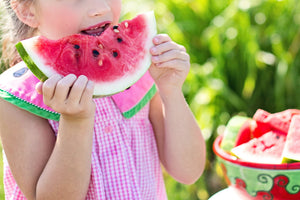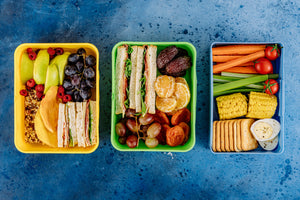Your child's wellness and growth are significantly impacted by the baby's brain development food that they consume in the initial two years of life. Children's brains grow and evolve at the same rate as they move from the classroom to after-school events, to the residence, and back again. Childhood and the formative days of a child's growth are crucial times for nutrition, which has been called one of the most important environmental effects on kids while they are still inside the womb. For the brain to grow properly and to support cognitive development far into adulthood, a good nutritional balance during the early years of growth is essential.
The growth of the brain and the body's muscles can be hampered by nutrient deficiencies like those in iodine and iron. Similar to this, there is mounting evidence that DHA, the beneficial fatty acid plays a crucial role in the rapid formation of synapses that enable the early years of life such an important time for learning and growth. Numerous additional nutrients, including choline, zinc, and folic acid, to mention a few, have also been particularly connected to the growth and function of the developing brain.
Whatever we eat has a direct consequence on how the brain develops and works, not just throughout early childhood but well into adulthood. Therefore, what foods must we consume to support cognitive performance and brain health?
How does nutrition affect child brain development?
It is complicated how nutrition plays a part in the development of the brain. The duration and severity of nutritional deficiencies determine their long-term effects. Early nutritional deficits can lower the generation of new brain cells. Cell complexity and size may be affected by later nutritional deficits. Deficits in certain nutrients also affect the brain's intricate chemical processes, which can result in less effective interaction between brain cells. All vitamin deficiencies affect how the brain develops and how the body functions.
Healthy Food For Kids That Encourage A Healthy Brain's growth
For a child's neurological and cognitive growth, the initial years of life are crucial. The nutrients your child consumes play a significant role in how their brain develops, especially in the formative years. There are several healthy foods for kids that can help your children focus while also improving the way their brains develop.
- Eggs: The nutrients in eggs, which are high in protein, aid in children's concentration, mental focus, and brain growth. Egg yolks are also an excellent source of choline, a B-complex vitamin that is linked to enhanced cognitive function.
- Greek yoghurt: For the development of the brain, healthy fat is crucial. Greek yoghurt with full-fat provides more protein as compared to other yoghurts and affects brain cell interaction, enhancing the capacity of these cells to transmit and receive signals. A tasty treat, you could even add wholesome fruits like berries and granola to your yoghurt to give each bite an extra boost of minerals and vitamins!
- Leafy Greens: Both kale and spinach are regarded as superfoods because they are full of vitamins, folate, and antioxidants that encourage the growth of new brain cells. Additionally, leafy greens are a good source of vitamin C, vitamin E, folic acid, and vitamin K, all of which are good for the brain.
- Fish: Fish is a fantastic nutrient-dense brain diet that is high in omega-3 fatty acids and vitamin D. Omega-3 fatty acids and vitamin D both shield the brain from loss of memory. Excellent sources of omega-3 include tuna, sardines, as well as salmon.
- Seeds and nuts: Protein, vitamins, fatty acids, and minerals that are necessary for a child's brain development are abundant in a variety of nuts and seeds. A form of omega-3 fatty acid called DHA, which is abundant in walnuts and minimizes age-related cognitive decline in older years, enhances cognitive growth in children. Omega-3 vitamins that support the brain are also abundant in almonds, macadamia nuts, and Brazil nuts.
Foods to exclude
Eliminate processed foods wherever possible. Polyunsaturated fats are commonly found in processed, quick, prepared, and boxed foods. Damage to brain cells may come from polyunsaturated fat-induced inflammatory reactions in brain tissue. Sunflower, corn oils, and safflower are examples of foods rich in polyunsaturated fats. These oils can be discovered in margarine, processed foods and salad dressings like fries as well as other fried items.
Manage and control your child's sugar consumption and refrain from consuming excessive quantities of processed sugar. Consuming too much sugar can cause insulin resistance, which has an impact on blood glucose concentrations. Young children's growing brains may suffer from high blood glucose concentrations.
To sustain a balanced diet, the proper type of carbs must be carefully balanced. In the body, simple carbs rapidly convert to sugar. Your body's carbohydrate levels will be in equilibrium if you stay away from simple carbohydrates and concentrate on complex carbohydrates in your diet.
Think of healthy food for kids as your child's brain's development. The food you and your kids eat has a direct impact on how your brain and cognitive abilities grow.






